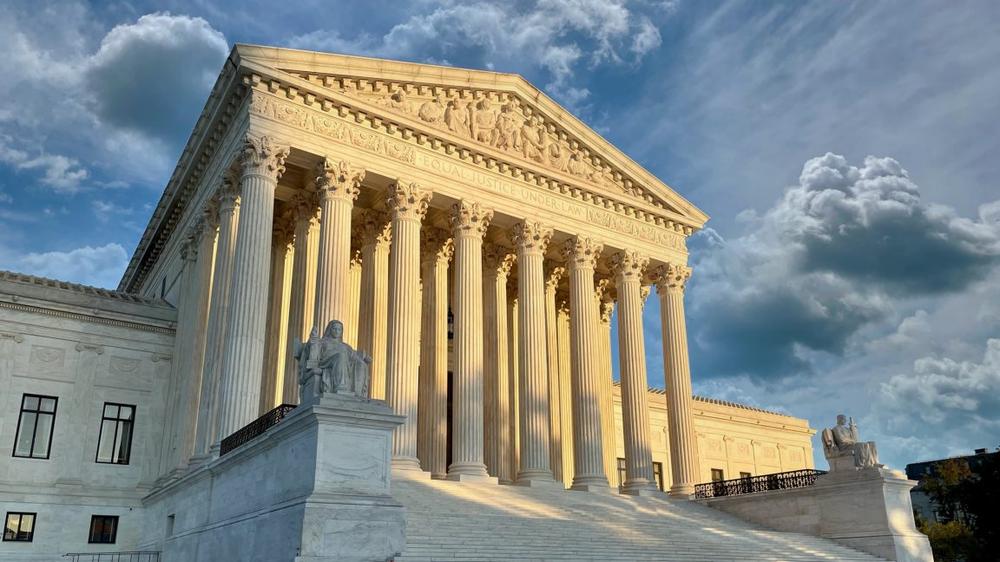The Supreme Court yesterday allowed President Trump to fire a Democratic member of the Federal Trade Commission and will decide whether to overturn a 90-year-old precedent that says the president cannot fire an FTC commissioner without cause.
Trump fired Commissioner Rebecca Kelly Slaughter in March with a notice that said her "continued service on the FTC is inconsistent with my administration's priorities." Trump did so despite the 1935 ruling in Humphrey's Executor v. United States, in which the Supreme Court unanimously held that the president can only remove FTC commissioners for inefficiency, neglect of duty, or malfeasance in office.
An appeals court reinstated Slaughter three weeks ago, with judges finding that "the government has no likelihood of success on appeal given controlling and directly on point Supreme Court precedent." But on September 8, Supreme Court Chief Justice John Roberts granted a stay that temporarily blocked the lower-court ruling against Trump.
The Supreme Court majority followed that up yesterday by granting a longer-term stay that will keep Slaughter off the FTC at least until the court rules on the merits of the case. The case will be scheduled for arguments in the December 2025 session.
"The parties are directed to brief and argue the following questions: (1) Whether the statutory removal protections for members of the Federal Trade Commission violate the separation of powers and, if so, whether Humphrey's Executor v. United States, 295 U. S. 602 (1935), should be overruled. (2) Whether a federal court may prevent a person's removal from public office, either through relief at equity or at law," the Supreme Court said.
Kagan: Trump given control of independent agencies
Justice Elena Kagan wrote a dissent that was joined by Justices Ketanji Brown Jackson and Sonia Sotomayor. Kagan wrote that the majority is continuing to use the court's emergency docket "to permit what our own precedent bars," "transfer government authority from Congress to the President," and thus "reshape the Nation's separation of powers."
Kagan wrote:
[T]he Court today issues a stay enabling the President to immediately discharge, without any cause, a member of the Federal Trade Commission (FTC). That stay, granted on our emergency docket, is just the latest in a series. Earlier this year, the same majority, by the same mechanism, permitted the President to fire without cause members of the National Labor Relations Board, the Merits Systems Protection Board, and the Consumer Product Safety Commission. Congress, as everyone agrees, prohibited each of those presidential removals. See, e.g., 15 U. S. C. § 41 (barring the President from discharging FTC Commissioners except for "inefficiency, neglect of duty, or malfeasance in office"). Under the relevant statutes, the entities just listed are "classic independent agenc[ies]"—"'multi-member, bipartisan commission[s]' whose members serve staggered terms and cannot be removed except for good reason." Yet the majority, stay order by stay order, has handed full control of all those agencies to the President. He may now remove—so says the majority, though Congress said differently—any member he wishes, for any reason or no reason at all. And he may thereby extinguish the agencies' bipartisanship and independence.
In Humphrey's Executor, the Supreme Court unanimously "rejected a claim of presidential prerogative identical to the one made in this case," involving the same agency, Kagan wrote. While the majority may end up reversing Humphrey's Executor, the case is still the controlling precedent, Kagan said.
Letting the president fire an FTC commissioner without cause "requires reversing the rule stated in Humphrey's: It entails overriding rather than accepting Congress's judgment about agency design," Kagan wrote. "The majority may be raring to take that action, as its grant of certiorari before judgment suggests. But until the deed is done, Humphrey's controls, and prevents the majority from giving the President the unlimited removal power Congress denied him. Because the majority's stay does just that, I respectfully dissent."
The FTC is currently composed of three Republicans. Normally, the controlling party would have a 3-2 majority instead of 3-0. Trump fired both Slaughter and Democrat Alvaro Bedoya, but Bedoya later resigned formally, so the court case is centered on Slaughter's claim only.

 Secret Service dismantles network capable of shutting down cell service in New York
Secret Service dismantles network capable of shutting down cell service in New York